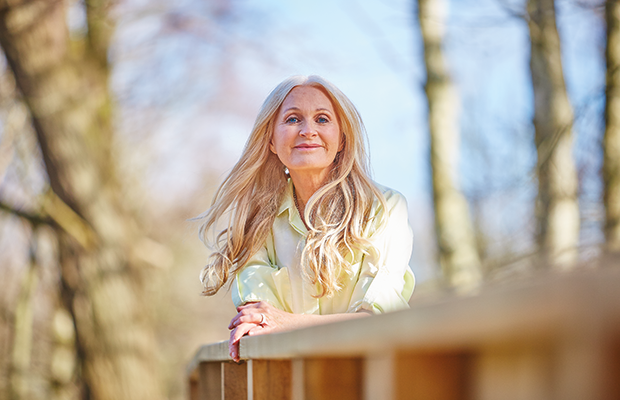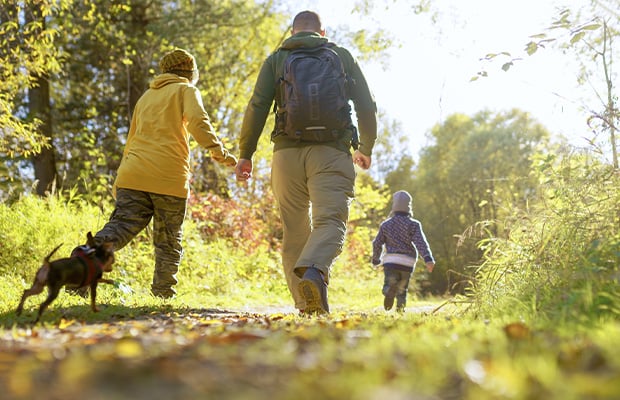“My diagnosis came when I was struggling with another health problem. In January 2010 I had a chest infection that would not go away. I went through 3 lots of antibiotics, but I was still unwell.
I carried on working because at that time, however rough I felt, I still felt it was more important to show up at work.
I think this was because I was raised by first generation Asians, whose cultural approach was, if you want to be successful you need to work hard, and that was foremost in my mind.
But by April I could barely walk down the road. My feet and ankles were so swollen I couldn’t get my shoes on.
When I did see my doctor, he very quickly said he thought I had heart failure. He said I needed to see a heart failure specialist as soon as possible.
It was like I had a slow puncture
The way I describe the onset of heart failure is like you’ve got a slow puncture. It happened to me gradually and crept up on me.
My job was managing change projects for Sainsbury’s. Before 2010 my life was travelling for work, staying in hotels, eating badly and constantly drinking sugary drinks. I did little or no physical activity.
My wife, Sue, was consumed by her job as a school deputy head and, with 2 daughters, we had a busy household to manage.
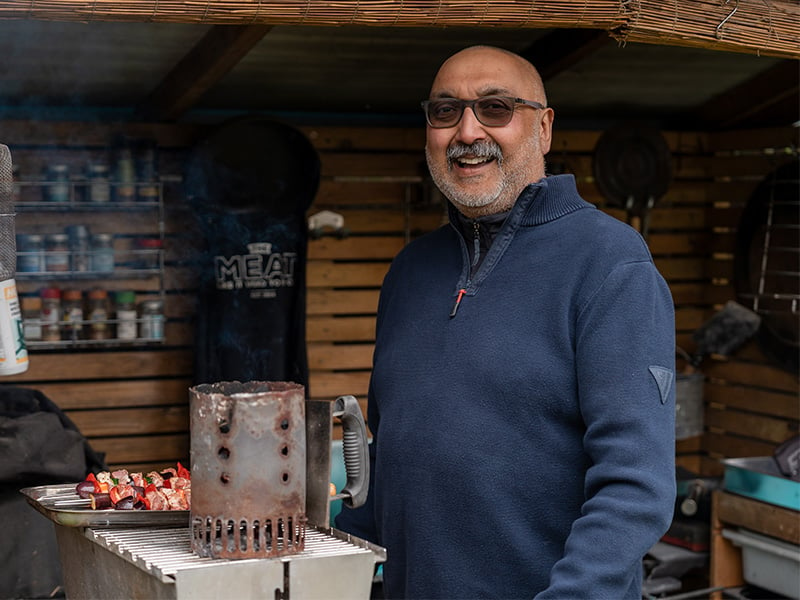
Yet I was still adding to my stress by saying ‘yes’ to too many community projects. I was chair of the borough of Harrow swimming club, where my daughters Gaby and Frankie swam competitively. I was also chair of Harrow Sports and Community Board and a member of the London Swimming Board in the run up to the 2012 London Olympics.
All of this was taking a toll on my health. I was putting on weight and needing to pee more often. My ankles were swelling and I constantly felt unwell. But I didn’t take any notice of these warning signs.
The hardest conversation
When the doctor said, ‘heart failure’, it was a big shock. After an MRI scan and blood tests, a cardiologist confirmed I had heart failure.
He explained that the pumping chamber of my heart was not working well to pump oxygen-rich blood around my body.
Hearing ‘heart failure’ was a big shock.
We realised that we had to go home and tell Gaby and Frankie how unwell I was.
That was the hardest conversation to have. The girls were only teenagers, and they have always seen me as the papa bear figure who puts his arms around them and makes everything OK.
It’s a shock when that person’s health is in trouble. Frankie started regularly coming home from school at lunchtimes to check up on me.
Want to get fit and healthy?
Sign up to our fortnightly Heart Matters newsletter to receive healthy recipes, new activity ideas, and expert tips for managing your health. Joining is free and takes 2 minutes.
I’d like to sign-up
Letting work go
The consultant cardiologist explained that he was going to put me on beta blockers to reduce how hard my heart had to work. He gave me diuretics to get rid of the excess water in my body.
At the same time, I was told I had type 2 diabetes. So suddenly I was on a cocktail of about 6 or 7 tablets a day. It was a challenge.
At this point I was just trying to survive to the next day. I was running to the loo constantly. I was very tired and would fall asleep on the sofa for hours.
I found out afterwards that my mum was coming over to sit with me while I was asleep.
I had to phone my director at work and tell her I needed to be signed off. She was amazing and told colleagues I would be off work for 8 weeks and all messages for me would have to come through her.
In one stroke she took away the stress, worry and responsibility of work. I don’t think I would have recovered as well without that leadership.
My future health became my focus
I went into survival mode. I told the swimming club I was going to take a break for 3 months.
Fixing myself had to be my focus. Work had gone away; all the other activities had to go on pause. I had to work on myself – I was on a mission.
Over the next 6 weeks I dropped 4 stone, and that was mostly excess water leaving my body. I wasn’t very mobile, but I had to try to start to exercise.
I started with just 15 minutes a day, walking 7 minutes to the park and 7 minutes back.
I began to eat more healthily, and I stopped drinking any alcohol. By the time I got to the end of the 6 weeks my heart function was improving.
That’s when I got myself a road bike and I tried to get out for short rides. I would work out a route that was 10 minutes, then 15, then 20.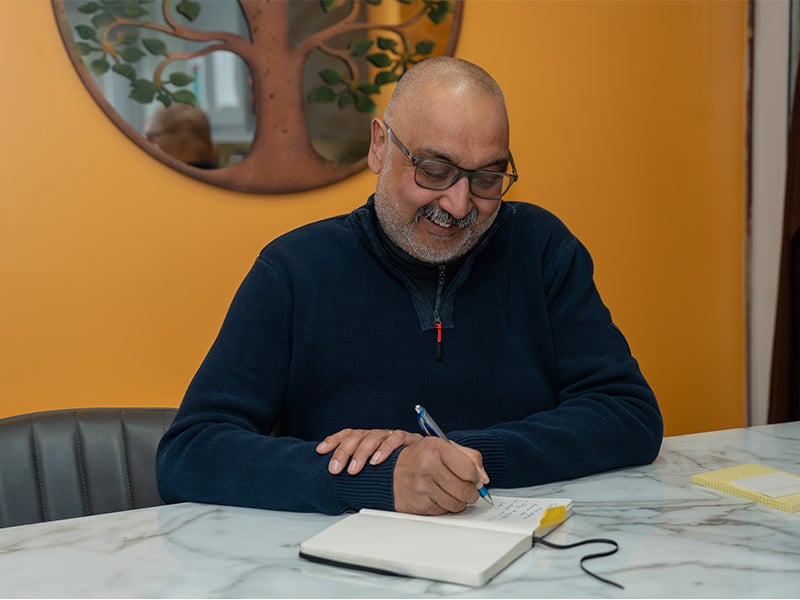
From day 1, I started keeping a journal. It was a record of the medications I was taking, my sleep, food and drink and how far I was cycling and walking.
It was also important to write about how I was feeling. There was a lot of mental stress from having to deal with something like this.
All the lifestyle improvements I have made were driven by those first weeks. I eat 3 meals a day and I do not snack. I exercise every day. I still start every day by reviewing the previous day’s journal to check I’m on track.
Back to work and new challenges
As a result of the medication, exercise and better diet, my heart function started to improve.
By September 2010 I was well enough to go back to work, starting with 3 half days.
I felt very nervous at first, wondering how I would get on in an office environment again and worrying about needing to find a toilet on the way to the London Underground. But the fear factor reduced, and I started feeling better mentally.
In 2016 Sue and I discovered Nordic walking, which is walking with poles for a total body workout, and a way of getting out with a group.
We found that an hour’s Nordic walking gave us a sense of wellbeing from being outdoors, it was cardio exercise, and it was social.
We both became Nordic walking instructors and in 2017 we started a small business, leading groups every day. I get to walk 5 days a week, a minimum of 3 miles with groups of people.
We have turned it into a very sociable community group. We recently did a programme in our local park for people with diabetes and high blood pressure. It’s brilliant for people who are inactive or maybe feeling a bit socially isolated.
I got more into more cycling and as a way of saying thank you to British Heart Foundation for the helpful information on the website I committed to doing the 55-mile London to Brighton ride.
I managed to recruit 4 friends from the swimming club committee who cycled with me. I did that for 3 years and raised about £6,000.
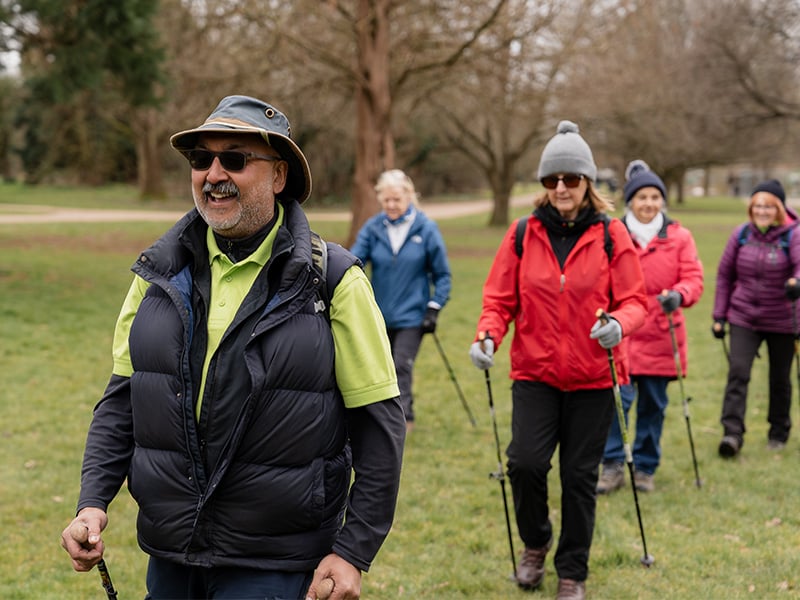
Green gyms for the community
I wanted to do something for the wider community as well. Between 2010 and 2014 I was the chair of community, sports and partnerships for Harrow Council.
When I was out on my bike very early in the morning, I would often see women in saris trying to get into the park to exercise before it was open.
They were either caring for children or they didn’t want to draw attention to themselves, so they would get out and do this before 5 or 6am.
I spoke to a councillor to see if we could introduce green gyms. A green gym is outdoor equipment which you can use free of charge in your local park. The aim is to make exercise accessible and convenient.
By 2014 every park in Harrow had a green gym.
I no longer live in that world where I thought 5 hours’ sleep was enough and used to drive for 4 hours while knocking back energy drinks.
I am forever grateful to lots of people who helped me. The unconditional love shown me from my mother, wife, children and director got me through.
My journey shows me that I have had a second chance and every day I live my life the best way I can.”
What to read next...

